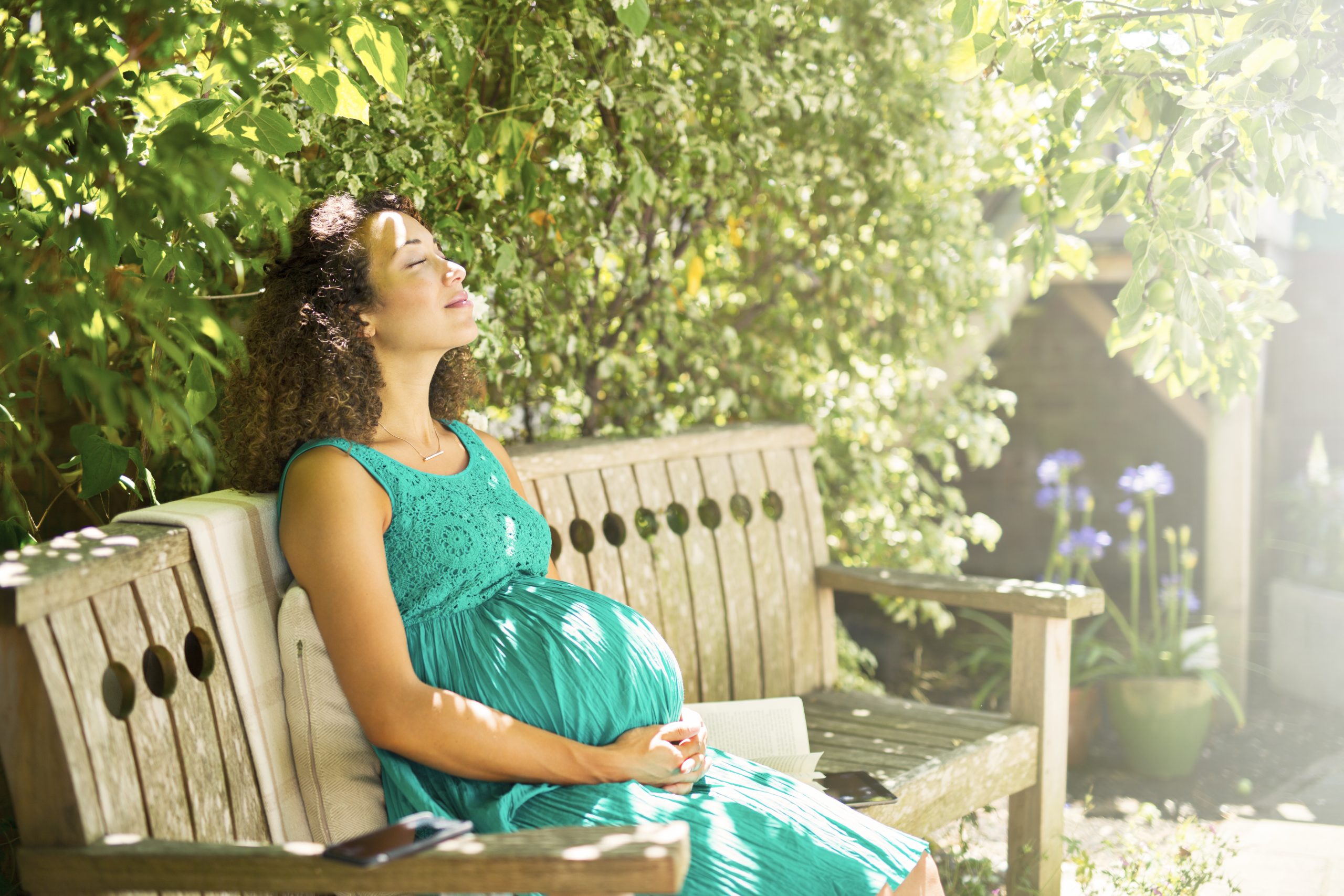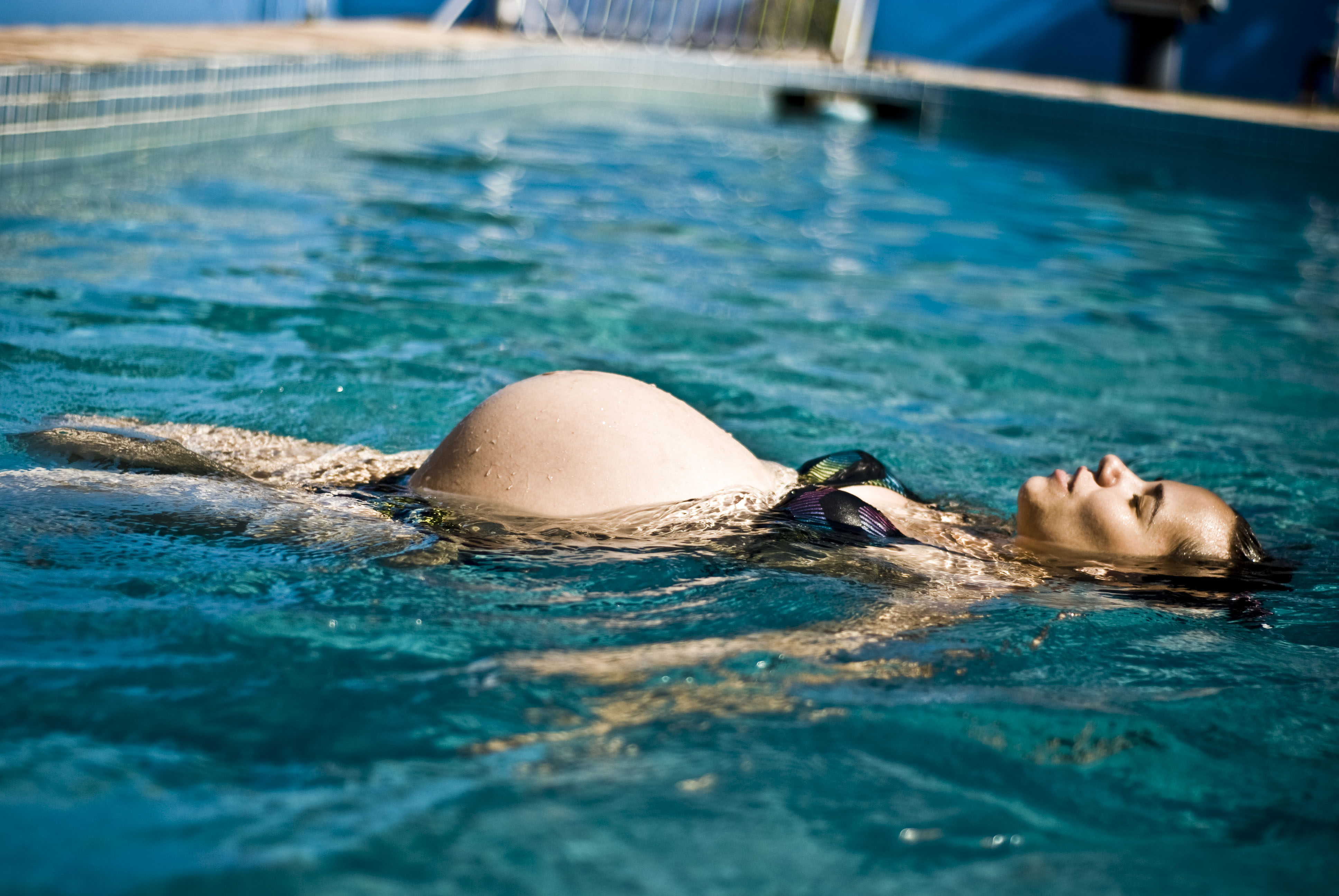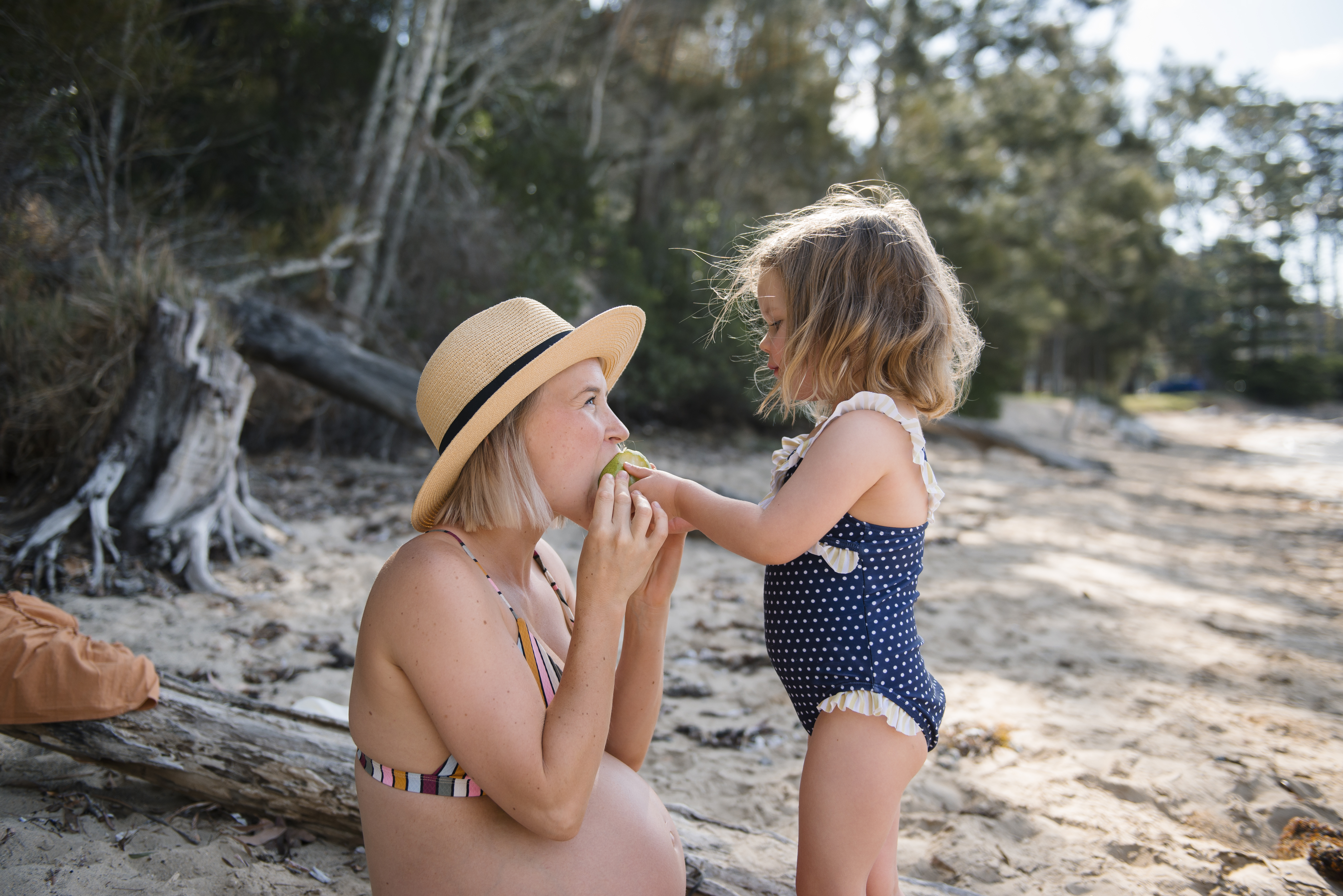Can you sunbathe when pregnant? Potential dangers and precautions to take


Parenting advice, hot topics, best buys and family finance tips delivered straight to your inbox.
You are now subscribed
Your newsletter sign-up was successful
Pregnancy changes almost everything about your body, from how safe it is to use nail polish to how you keep cool during hot weather, but can you sunbathe when pregnant?
How you protect yourself from the sun during pregnancy may change, whether that's using a higher SPF or looking for the best suncream that you can find or one that is chemical-free.
But pregnancy shouldn't stop you getting out and enjoying the sun. In fact, a little but of natural Vitamin D will probably do you good.
So whether you’re jetting off to hotter climates or just want to be as safe as possible during the summer months, here’s what you need to know about sunbathing while pregnant.
Can you sunbathe when pregnant?
In general yes, you can sunbathe when pregnant. According to Professor Asma Khalil, Professor of Obstetrics and Maternal-Fetal Medicine at The Portland Hospital, sunbathing won’t specifically affect your pregnancy in any way.
In fact, she says, “When you’re pregnant you have more ‘melanin stimulating hormone’ in your body, so you might notice that you tan more easily.”
What are the risks of sunbathing when pregnant?
Because of this higher hormone level you need to take extra care to protect your skin. “Some women who are exposed to strong sunshine during pregnancy will develop dark pigmented patches on their face, called ‘melisma’.” Professor Khalil explains, “And sometimes these don’t go away, even after the birth."
Parenting advice, hot topics, best buys and family finance tips delivered straight to your inbox.
Prevention is always better than sunburn treatment, Consultant dermatologist for Stratum Dermatology Clinics, Dr Adam Friedmann, agrees. “There is no proven way to reverse the signs of sun damage in the skin, so prevention is highly recommended as the best way to avoid sun damage.
“Sun damage causes changes in the DNA of skin cells, and also reduces the efficiency of our immune cells to detect and fight sun damage.”
“As tempting as it may be for people to work on their tan this summer, it is certainly not worth turning a blind eye to the skin cancer risk. Even short-term episodes of sunburn and tanning will increase the risk of a melanoma,” says Dr Friedmann.
It’s also important not to become overheated. “Remember that the baby, because it’s inside you, can lose heat only to you.” Professor Khalil says, “So if you feel hot, the baby is even hotter. If you start to feel too warm, cool down in the pool or sea, or retreat to the shade for a while."

“Finally,” She adds, “Make sure you remain well-hydrated. Becoming dehydrated is not good for you or the baby.”
How to protect your skin during pregnancy
Much like protecting your skin during other stages of life, there are some steps you can take to protect your skin during pregnancy:
How to use SPF in the correct way
While we all know that suncream is one of the biggest ways to prevent sunburn, it has to be used in the right way to be effective.
“SPF is the most important product in your skincare regime,” Dr Friedmann says. “And it is important to apply it every day on areas exposed to the sun from March to September.”
It should always be applied at the last stage of your regime though, “before applying make-up, as it doesn’t penetrate the skin. Instead, it sits on top of the skin forming either a physical or chemical protective layer that soaks up ultraviolets rays and greatly reduces the cellular DNA from being damaged.”
It’s best to use the highest quality sun creams out there as well as Dr Friedmann says, “with five stars of "UVA" protection to give the highest levels of defence. While UVA rays have less energy and don’t burn the skin, they do cause the skin to age and contribute to the development of melanoma.”
Re-apply the cream every two hours and immediately after swimming, sweating and any towel drying or if it has rubbed off in any way. Even water resistant sun creams don't work as well as we might think.

Even though sun creams are perfectly safe to use during pregnancy. But if you’re worried about the chemicals absorbing into your skin, you can swap out traditional sun cream for “mineral sun creams containing titanium and zinc which sit on the skin” rather than absorb into it.
Always wear a hat
“Take care to protect your face, for example with a large sunhat,” advises Professor Asma Khalil from the Portland Hospital, which is a part of HCA Healthcare UK.
Dr Friedmann adds that “covering the skin with lightweight clothing when exposed to the sun” is also important and advises people to “wear protective items such as a hat when out in the sun.”
Stay out of the sun where possible
Dermatologist Dr Adam Friedmann also suggests staying out of the sun between the hours of 11am to 3pm to avoid the sun at its strongest.
“Be aware of reflections too. If the sun’s rays are reflected, the radiation can increase greatly. Snow [increases radiation] up to 85%, sand up to 17% and water up to 5%.”
[apester id = "6070876fb42ca60009f99263"]
So while you can sunbathe when pregnant, it's best to follow all the safety steps to ensure that you're doing long-term damage to your skin.

Grace Walsh is a health and wellbeing writer, working across the subjects of family, relationships, and LGBT topics, as well as sleep and mental health. A digital journalist with over six years experience as a writer and editor for UK publications, Grace is currently Health Editor for womanandhome.com and has also worked with Cosmopolitan, Red, The i Paper, GoodtoKnow, and more. After graduating from the University of Warwick, she started her career writing about the complexities of sex and relationships, before combining personal hobbies with professional and writing about fitness.